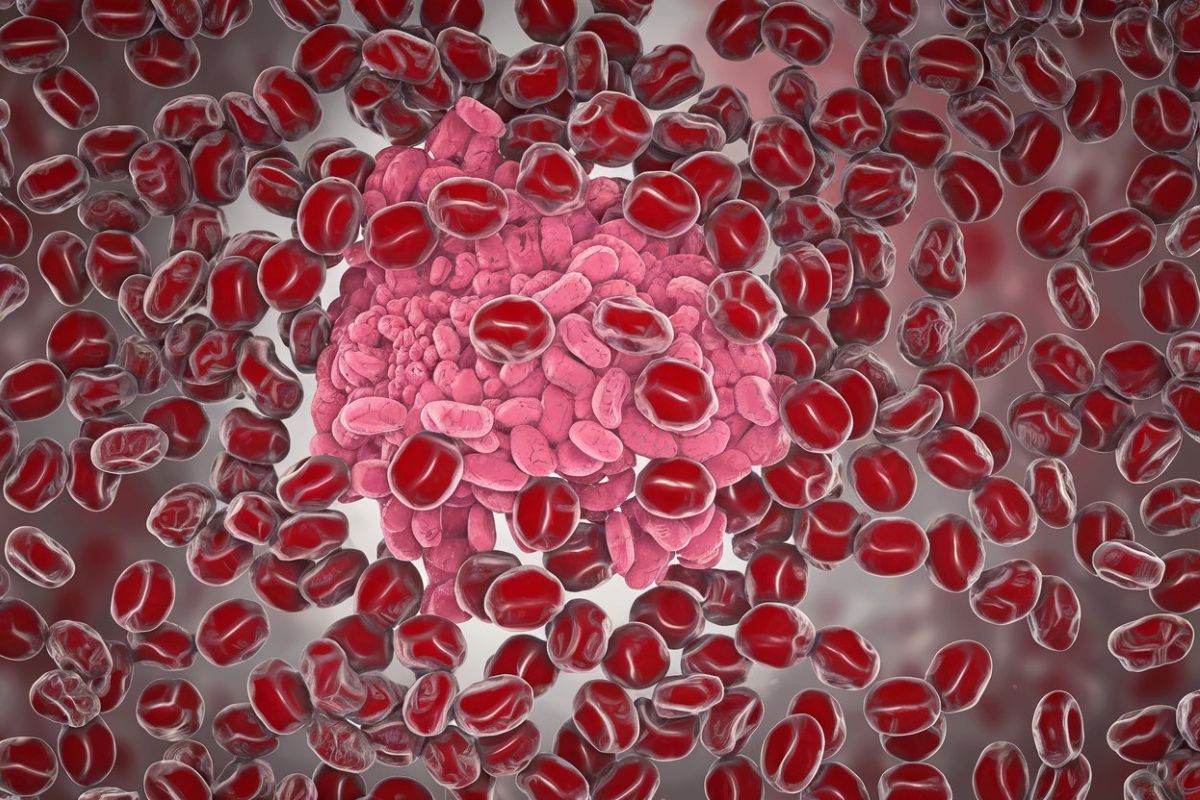
Periodic Fever Syndrome might sound like a rare condition, but it affects more people than you think. These syndromes are a group of disorders characterized by recurrent fevers without an infection. Symptoms often include fever, rash, joint pain, and abdominal pain. The cause is usually genetic, meaning it can run in families. Diagnosis can be tricky since symptoms overlap with other illnesses. Treatment often involves medications to reduce inflammation and manage symptoms. Living with Periodic Fever Syndrome can be challenging, but understanding it better can help manage the condition. Ready to learn 50 facts about this intriguing syndrome? Let's dive in!
Key Takeaways:
- Periodic Fever Syndrome (PFS) is a rare condition caused by genetic mutations, leading to recurrent fevers and other symptoms. Early diagnosis and proper management can improve quality of life for patients.
- Different types of PFS have unique characteristics and genetic causes, guiding treatment strategies. Support groups, education, and lifestyle changes are essential for managing PFS and improving overall well-being.
What is Periodic Fever Syndrome?
Periodic Fever Syndrome (PFS) is a group of disorders characterized by recurrent episodes of fever. These fevers are not caused by infections but are due to genetic mutations affecting the immune system. Understanding PFS can help manage symptoms and improve quality of life.
- PFS is a rare condition, affecting fewer than 200,000 people in the United States.
- It is often diagnosed in childhood, though symptoms can persist into adulthood.
- Genetic mutations are the primary cause of PFS, leading to abnormal immune responses.
- Common symptoms include fever, rash, abdominal pain, and joint pain.
- Episodes of fever can last from a few days to several weeks.
- There are several types of PFS, including Familial Mediterranean Fever (FMF) and Tumor Necrosis Factor Receptor-Associated Periodic Syndrome (TRAPS).
Types of Periodic Fever Syndrome
Different types of PFS have unique characteristics and genetic causes. Knowing the specific type can guide treatment and management strategies.
- Familial Mediterranean Fever (FMF) is the most common type of PFS.
- FMF primarily affects people of Mediterranean descent, such as those from Turkey, Armenia, and Arab countries.
- TRAPS is caused by mutations in the TNFRSF1A gene.
- TRAPS symptoms include long-lasting fevers, abdominal pain, and muscle pain.
- Hyper-IgD Syndrome (HIDS) is another type, characterized by elevated levels of immunoglobulin D.
- HIDS often presents with fever, rash, and swollen lymph nodes.
- Cryopyrin-Associated Periodic Syndromes (CAPS) include three related disorders: Familial Cold Autoinflammatory Syndrome (FCAS), Muckle-Wells Syndrome (MWS), and Neonatal-Onset Multisystem Inflammatory Disease (NOMID).
Symptoms and Diagnosis
Recognizing the symptoms and obtaining an accurate diagnosis are crucial steps in managing PFS. Early diagnosis can lead to better treatment outcomes.
- Symptoms often begin in early childhood, typically before age 10.
- Fevers in PFS are usually high, often exceeding 100.4°F (38°C).
- Rash is a common symptom, often appearing as red, raised patches on the skin.
- Abdominal pain can be severe, mimicking conditions like appendicitis.
- Joint pain and swelling are frequent, particularly in the knees and ankles.
- Blood tests can reveal elevated inflammatory markers during fever episodes.
- Genetic testing is essential for confirming a PFS diagnosis.
- Family history plays a significant role in diagnosing PFS, as many types are inherited.
Treatment Options
While there is no cure for PFS, various treatments can help manage symptoms and reduce the frequency of fever episodes.
- Nonsteroidal anti-inflammatory drugs (NSAIDs) are often used to reduce fever and pain.
- Colchicine is commonly prescribed for FMF to prevent fever episodes.
- Biologic medications, such as anakinra and canakinumab, target specific inflammatory pathways.
- Corticosteroids may be used during severe flare-ups to control inflammation.
- Regular monitoring by a healthcare provider is essential for managing PFS.
- Lifestyle changes, such as stress management and a healthy diet, can help reduce symptom severity.
- Patients with PFS should avoid known triggers, such as cold exposure in CAPS.
Living with Periodic Fever Syndrome
Managing PFS involves more than just medical treatment. Emotional and social support are vital for improving the quality of life for patients and their families.
- Support groups can provide valuable resources and emotional support.
- Education about the condition helps patients and families cope better.
- Regular exercise can improve overall health and reduce stress.
- Maintaining a symptom diary can help identify patterns and triggers.
- Schools and employers should be informed about the condition to provide necessary accommodations.
- Genetic counseling is recommended for families with a history of PFS.
- Mental health support, such as counseling or therapy, can help manage the emotional impact of living with a chronic condition.
Research and Future Directions
Ongoing research aims to better understand PFS and develop more effective treatments. Advances in genetics and immunology hold promise for the future.
- Researchers are studying the genetic mutations that cause PFS to develop targeted therapies.
- Clinical trials are testing new medications that may offer better symptom control.
- Advances in genetic testing are making it easier to diagnose PFS accurately.
- Understanding the immune system's role in PFS could lead to new treatment approaches.
- Patient registries and databases are helping researchers gather valuable information about PFS.
- Collaboration between researchers, healthcare providers, and patients is essential for advancing PFS research.
- Increased awareness and education about PFS can lead to earlier diagnosis and better management.
Impact on Daily Life
PFS can significantly impact daily life, but with proper management, patients can lead fulfilling lives. Understanding the challenges and finding ways to cope is crucial.
- Frequent fever episodes can disrupt school and work attendance.
- Chronic pain and fatigue can affect daily activities and quality of life.
- Social isolation may occur due to the unpredictable nature of symptoms.
- Financial strain can result from medical expenses and time off work.
- Emotional stress is common, affecting both patients and their families.
- Developing a strong support network can help manage the challenges of PFS.
- Open communication with healthcare providers ensures better symptom management.
- Staying informed about the latest research and treatment options empowers patients and families.
Understanding Periodic Fever Syndrome
Periodic Fever Syndrome (PFS) can be a tricky condition to grasp, but knowing the key facts helps. PFS includes a group of disorders causing recurring fevers without infections. These fevers often come with other symptoms like joint pain, rashes, and abdominal pain. Genetics play a big role, with many types of PFS being inherited. Early diagnosis and treatment are crucial for managing symptoms and improving quality of life. Treatments may involve medications to reduce inflammation and control fever episodes. Regular check-ups with healthcare providers ensure the condition stays under control. Staying informed and proactive can make a significant difference for those affected by PFS. Remember, while PFS can be challenging, understanding it better equips you to handle it effectively.
Frequently Asked Questions
Was this page helpful?
Our commitment to delivering trustworthy and engaging content is at the heart of what we do. Each fact on our site is contributed by real users like you, bringing a wealth of diverse insights and information. To ensure the highest standards of accuracy and reliability, our dedicated editors meticulously review each submission. This process guarantees that the facts we share are not only fascinating but also credible. Trust in our commitment to quality and authenticity as you explore and learn with us.


